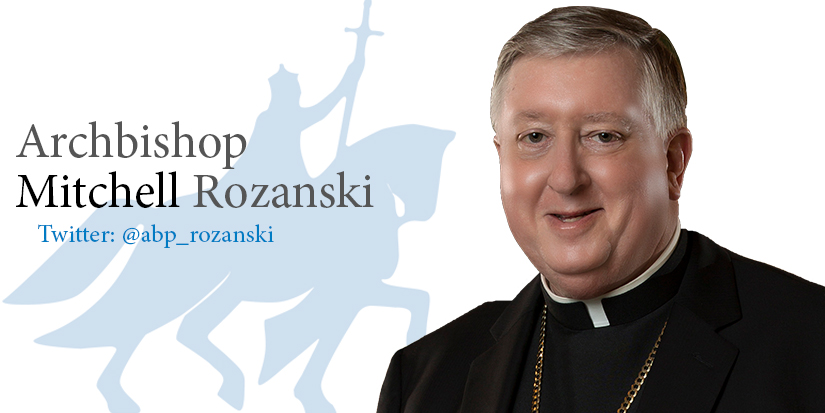 Dear brothers and sisters in Christ,
Dear brothers and sisters in Christ,
We will observe the Week of Christian Unity here in the Archdiocese of Saint Louis and all over the world, and the cause is dear to my heart.
The deepest reason why this issue is important is that Jesus prayed for it! In His prayer in John 17 He says: “I pray … that they may all be one, as you, Father, are in me and I in you, that they also may be in us, that the world may believe that you sent me.”
Notice, it sounds like Jesus prayed for this because He knew it would be a point of contention among His followers! Knowing what we know about the subsequent history of division among Christians, we can certainly join in His prayer.
Notice, too, why Jesus said this unity was important: “That the world may believe that you sent me.” Quite simply, division among Christians is a countersign to the Gospel we proclaim. Prayer for Christian unity, then, is not just a “feel good” optional and side program. It has to be part of our evangelizing efforts.
Some commentators have pointed out that we’ve moved from a “Christendom” age to an “Apostolic” age. In a Christendom age, Christianity can be presupposed as a background belief, and institution building is a primary means of proclaiming the Gospel, because people will come to you. In an Apostolic age, we have to presume a secular mentality, and we have to go out to people, who need to hear the Gospel for the first time.
That shift has an impact on how we think of the relations between Christians. Facing each other, we can tend to focus on our differences — and there are real differences! But facing an increasingly secular world we realize that — as Pope St. John XXIII once said — what unites us is much greater than what divides us. These days, we need to face the world together more often and more deliberately, and bear witness together to the life and peace that comes only from following Jesus Christ.
There have been positive signs that we’re doing so! In 1965, the Eastern and Western churches lifted their mutual excommunications — excommunications that stood since 1054! In 1999, Catholics and Lutherans in the United States issued a “Joint Declaration on the Doctrine of Justification” — the very point that had divided us since 1517. From 1994 to 2015, the group “Evangelicals and Catholics Together” issued a series of statements on important issues for Christian life in America. None of these movements has brought complete reconciliation — there remains much to be done! But each of them points to the fact that we’re turning a corner: After centuries of deepening our divisions and going our separate ways, we’re turning toward greater reconciliation. It’s a moment of great hope, with respect to Jesus’ prayer that His disciples might be one.
The Church’s theological approach to the matter has been carefully articulated in a series of documents — from the Second Vatican Council’s Decree on Ecumenism (“Unitatis Redintegratio”) to St. John Paul II’s encyclical on Ecumenical Relations (“Ut Unum Sint”) to the Congregation for the Doctrine of the Faith’s declaration on ecumenical and interreligious issues (“Dominus Iesus”). It’s important to be aware of those documents, so that we’re faithful to Catholic teaching as we engage in ecumenical conversation.
But our goal this week is simply to pray together — to join our voices with the prayer of Jesus. In doing so, we trust that our prayer has a role to play in advancing the cause of unity and advancing the proclamation of the Gospel to a world sorely in need of it.
Please join me this week as we pray for Christian Unity.